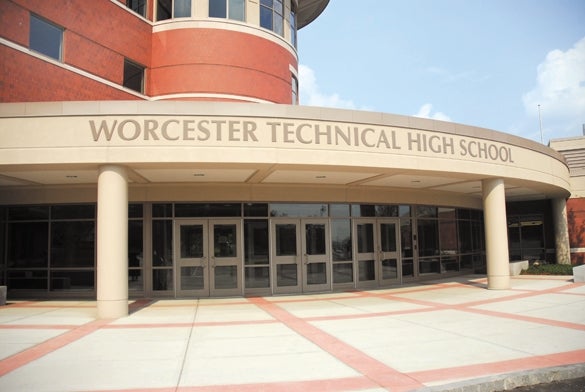It may be one of the less flashy sides of the biotechnology and pharmaceutical industries, but jobs working with laboratory animals have been growing fast in recent years. Now, Worcester Technical High School is planning a program to train students who want to get into the field.
Peter Crafts, director of vocational education at the school, said officials there are working with Charles River Laboratories International Inc. to develop a curriculum around the subject.
Crafts said the Wilmington-based research support company is helping instructors learn about industry standards and the skills employers are looking for. If all goes well, he said, interested members of this year’s class of sophomores will eventually be able to take some classroom lessons and then work at Charles River’s Shrewsbury location in their senior year to get experience in the field.
Veterinary Techs Wanted
There’s a serious shortage of good candidates for lab animal handling jobs, according to a report issued by the Massachusetts Society for Medical Research this summer. It said that colleges in the state awarded a total of just 73 veterinary technician degrees in 2006. To fill the predicted need for techs in the state’s labs, it said, 60 percent of those graduates would have to go into the research field. In reality, though, far fewer do.
Dennis Guberski, president and chairman of Biomedical Research Models in Worcester, said he doesn’t have too much trouble finding smart high school and college graduates that the company can train for technician jobs, but he said he likes the idea of specialized training at Worcester Tech.
“We’d love to get something going with the high schools for on-the-job training and then get people right into the workforce here because this really is a growing field,” he said.
The proposed new program would be part of the school’s veterinary assisting program, which itself began only in 2007. Christina Melvin, the school’s veterinary assistant instructor, said her classes allow allied health students to learn about animal medicine, as well as the human kind. In their junior year, she said, students can choose to specialize in the veterinary field.
Melvin said she focuses her lessons mainly on small animal care but also talks about careers in research centers and in large animal medicine. Although her room is not equipped for cats and dogs, she said students work with guinea pigs and hamsters and practice restraint holds on animal mannequins.
She said the program prepares students to be veterinary assistants, a job that requires no formal certification. Graduates are also well prepared to take additional classes and become certified as veterinary technicians, or even go on to veterinary school, she said.
Melvin said adding more of a research component to the school’s offerings would benefit students.
“We’re in Worcester,” she said. “We’re surrounded by research facilities.”
Alan Dittrich, president of the Massachusetts Society for Medical Research, said only a few high schools around the state have programs with a strong focus on laboratory animal handling. But he said it makes sense as an area of expansion for more traditional veterinary programs.
“I think one of the things that schools are recognizing,” he said, “[is that] Massachusetts is not truly an agricultural state anymore.”
While animal testing can be a touchy subject, Crafts said he doesn’t anticipate much opposition from students or parents. Individuals would have to choose to participate in the program, he said, and all hands-on experience would take place at worksites, not at the school.
Melvin and Guberski also said one important aspect of education on working with laboratory animals is to expose myths about the industry. Guberski said companies like his work under accreditations that ensure animals are housed humanely and aren’t subjected to cruel procedures.
Dittrich said another positive outcome of creating new programs in the field is simply to expose students to careers they might otherwise never consider.
“No one really starts out at 15 thinking, ‘ooh, lab animal science,’” he said, “Because no one really knows about it.”

